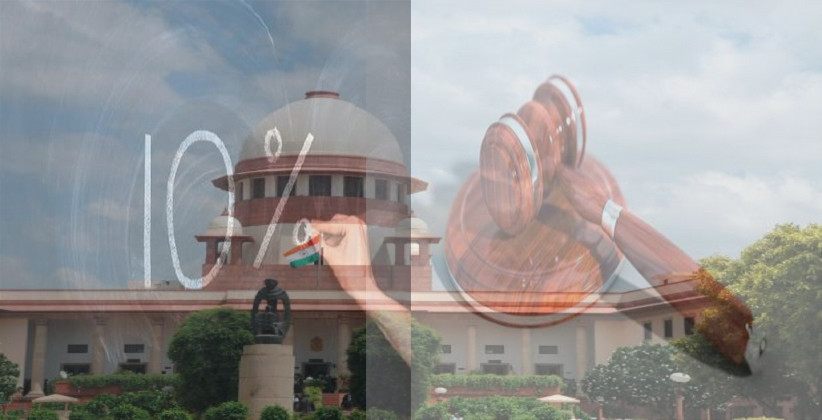The Constitution (One hundred and twenty-fourth amendment) Bill, 2019, to provide 10% economic reservation was challenged in the Supreme Court on January 10, 2019, soon after it was passed by the Parliament.
The petition, filed by Youth For Equality organization and Kaushal Kant Mishra, sought the quashing of the Bill, saying that the economic criteria cannot be the sole basis for reservation. The same was held in a nine-judge Bench judgment of the Supreme Court in Indira Sawhney and others v. Union of India.
The plea contended that the Bill violated the basic feature of the Constitution as reservation on economic grounds cannot be limited to the general categories and the 50% ceiling limit cannot be breached as it has been engrafted as a part of the basic structure of the Constitutions equality code by the Supreme Court.
Further, the plea also contended that the proposed amendments excludes the OBCs and the SC/ST communities from the scope of the economic reservation. This, it said, essentially implies that only those who are poor from the general categories would avail the benefits of the quotas.
The Supreme Court has upheld the equality code as one of the foremost basic features of the Constitutionthe value of equality has been repeatedly emphasized to ensure that equals are not treated unequally, the plea said.
The Rajya Sabha passed the Bill on January 9, 2019, a day after the Lok Sabha approved the Bill. The quota will be over and above the existing 50% reservation to SCs, STs and Other Backward Classes (OBCs)







